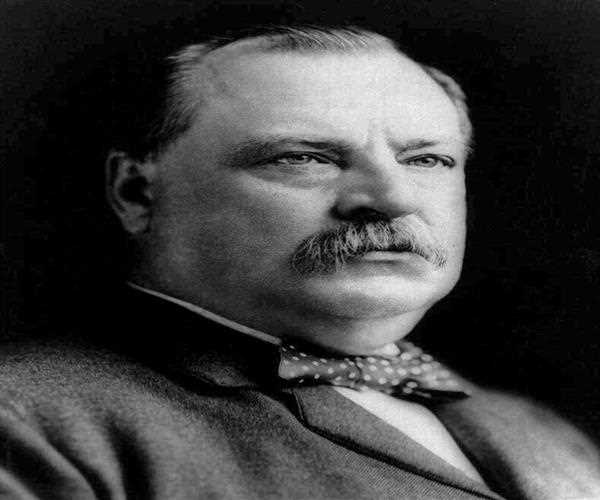Grover Cleveland (1837-1908), who filled in as the 22nd and 24th U.S. president, was known as a political reformer. He is the main president to date who served two nonconsecutive terms, and furthermore the main Democratic president to win race amid the time of Republican mastery of the White House that extended from Abraham Lincoln's (1809-65) race in 1860 to the finish of William Howard Taft's (1857-1930) term in 1913.

Cleveland filled in as a legal counselor and after that filled in as chairman of Buffalo, New York, and legislative leader of New York state before expecting the administration in 1885. His record in the Oval Office was blended. Not viewed as a unique mastermind, Cleveland viewed himself as a guard dog over Congress instead of an initiator. In his second term, he rankled a considerable lot of his unique supporters and appeared overpowered by the Panic of 1893 and the despondency that took after. He declined to keep running for a third term.
In the first place Term in the White House: 1885-89
The 1884 presidential crusade was appalling: Cleveland's Republican rival, U.S. Representative James G. Blaine (1830-93) of Maine, was ensnared in a few money-related embarrassments, while Cleveland was associated with a paternity case in which conceded that he had paid youngster bolster in 1874 to a lady who asserted he was the dad of her kid. Regardless of the outrage, Cleveland won the decision with the help of the Mugwumps, Republicans who considered Blaine degenerate.
Second Term in the White House: 1893-97
Cleveland's second term, nonetheless, opened with the most noticeably bad money related emergency in the nation's history. The Panic of 1893 started with a railroad chapter 11 in February 1893, took after quickly by bank disappointments, an across the nation credit emergency, a securities exchange crash and the disappointments of three more railways.
Joblessness rose to 19 percent, and a progression of strikes disabled the coal and transportation ventures in 1894. The American economy did not recoup until 1896-97 when the Klondike dash for unheard-of wealth in the Yukon contacted off a time of fast development.
Cleveland was a genuine and dedicated president yet he is censured for being unoriginal and having no all-encompassing vision for American culture. Contradicted to utilizing enactment to achieve social change, he is best known for reinforcing the official branch of the national government in connection to Congress.
Last Years
By the fall of 1896, Cleveland had turned out to be disagreeable with a few groups in his own gathering. Different Democrats, nonetheless, needed him to keep running for a third term, as there was no term constrain for presidents around then. Cleveland declined, and previous U.S. Agent William Jennings Bryan (1860-1925) of Nebraska won the selection.
In the wake of going out in 1897, Cleveland resigned to his home in Princeton, New Jersey, and filled in as a trustee of Princeton University from 1901 until his demise. He denied suggestions from his gathering to run again for the administration in 1904. His wellbeing started to bomb quickly toward the finish of 1907 and he kicked the bucket of a heart assault at 71 years old on June 24, 1908. As indicated by two of Cleveland's biographers, his last words were, "I have made a decent attempt to do right."